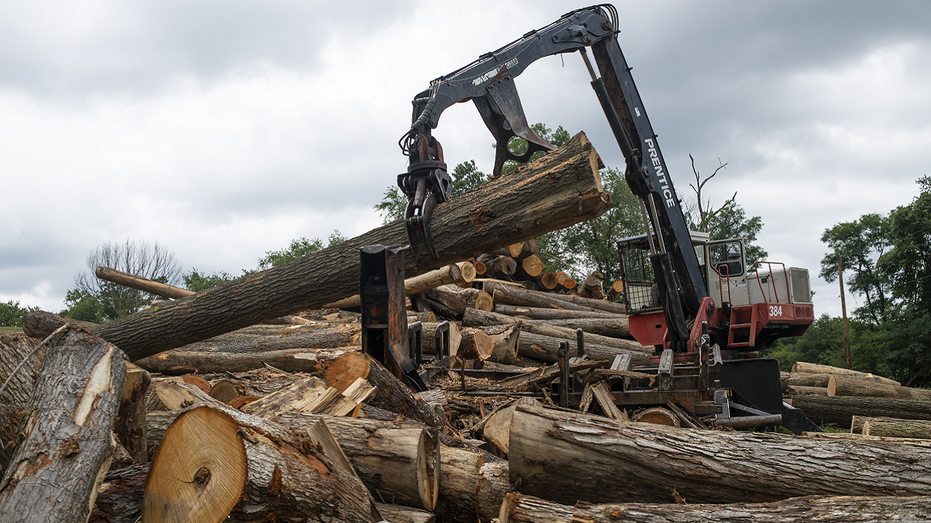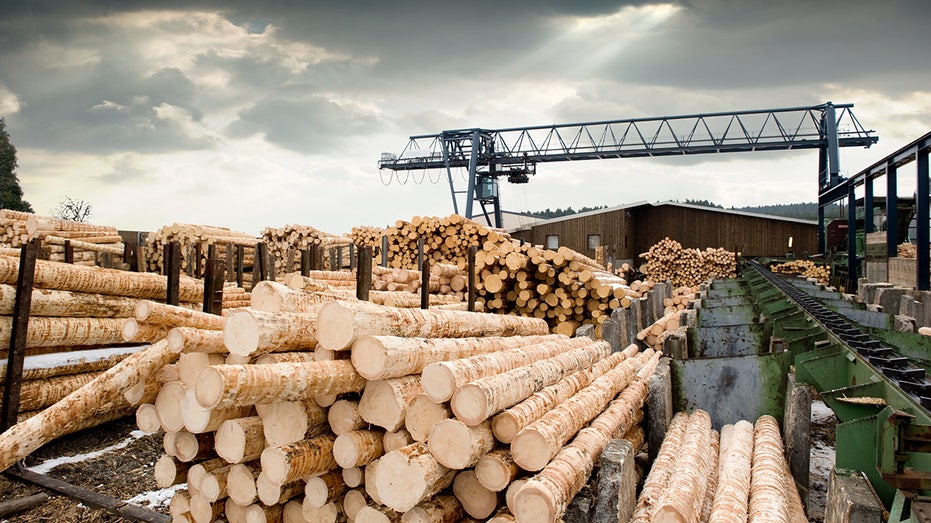JPMorgan Asset Management adds $500M of southern timberland
The deal is Wall Street’s latest wager that forests will be valued for more than wood products
JPMorgan CEO Jamie Dimon shares his outlook for wage inflation in 2023
FOX Business host Maria Bartiromo sat down with JPMorgan Chase & Co. CEO Jamie Dimon to discuss the current state of the U.S. economy.
J.P. Morgan Asset Management’s timber-investing arm has acquired about 250,000 acres in the Southern pine belt for more than $500 million, Wall Street’s latest big woodlands purchase made with an eye toward carbon markets.
The wealth manager said its Campbell Global unit, which invests on behalf of pension funds, foundations and other institutional investors, will manage the commercial forests in Mississippi, Oklahoma and Arkansas for wood production as well as carbon capture.
The latter is usually accomplished with less logging. Companies eager to make up for their emissions are paying timberland owners to leave trees standing so that they can absorb carbon from the atmosphere as they grow. Such deals generate tradable instruments called carbon offsets.
The pricing of carbon, along with mounting corporate pledges to operate without adding greenhouse gases to the atmosphere, has prompted investors to rethink the value of timberlands and place long-term bets on woodlands that are based on more than just what the logs might fetch at a sawmill.
RUSSIAN OLIGARCHS INVEST IN US COMMERCIAL REAL ESTATE, BYPASSING SANCTIONS AS FEDS WARN BANKS
In November, Oak Hill Advisors LP, a major player in credit markets, made one of the largest U.S. timberland purchases in years, paying $1.8 billion for hardwood forests in 17 states with a plan to reduce logging and accumulate carbon.
| Ticker | Security | Last | Change | Change % |
|---|---|---|---|---|
| JPM | JPMORGAN CHASE & CO. | 322.10 | -0.30 | -0.09% |
In December, one of the country’s largest timberland owners, Manulife Investment Management, said it was aiming to raise $500 million to buy properties where sequestering the carbon in standing trees will be prioritized over cutting them down to make wood products.

A worker operates machinery to cut logs during a tree harvest in Moundsville, West Virginia, on Aug. 27, 2020. (Ty Wright/Bloomberg via Getty Images / Getty Images)
"For large timberland purchases carbon is an integral part of valuation, just as timber is," said Anton Pil, head of alternatives for J.P. Morgan Asset Management, which manages $2.45 trillion and acquired Campbell in 2021. "Management of these lands longer term is a balance of wood harvesting and carbon capture."
MAJOR US FINANCIAL FIRM GIVES BLACKLISTED CHINESE COMPANIES HIGHER ESG RATINGS THAN AMAZON, META
Loblolly pine, grown across the South to make lumber and pulp for paper and boxboard, is the dominant species on the acquired properties, with pockets of hardwood, said Angie Davis, Campbell’s president.
Forest carbon deals tend to happen in regions, such as New England and the Great Lake states, where mills have closed and log prices have declined. Campbell sought Southern timber because there are plenty of log buyers around and the trees there grow fast, which makes them more valuable whether they are sold as carbon stores or to mills.

Stacks of logs at a sawmill (lumber mill).
"It gives you maximum optionality," Mr. Pil said.
There haven’t been enough carbon deals yet to affect the flow of logs to mills, forest-products executives say, though the presence of carbon-counting buyers has begun to significantly influence the market for timberlands, which topped $5 billion last year.
"There’s starting to be a better realization and recognition of some of the alternative values that are inherent in owning timberlands," Weyerhaeuser Co. Chief Executive Devin Stockfish told investors last week.
CLICK HERE TO GET THE FOX BUSINESS APP
On Tuesday, PotlatchDeltic Corp. CEO Eric Cremers said he expects timber deal making to dwindle in 2023, due to sellers holding out for higher prices in the end markets for their trees.
| Ticker | Security | Last | Change | Change % |
|---|---|---|---|---|
| PCH | POTLATCHDELTIC CORP. | 41.73 | +0.02 | +0.05% |
"Sellers are choosing to wait until there are some signs of a recovery in housing starts and lumber demand to bring properties to market," he said. "Also, we suspect sellers might be holding back as carbon potential is becoming a bigger and bigger deal."




















